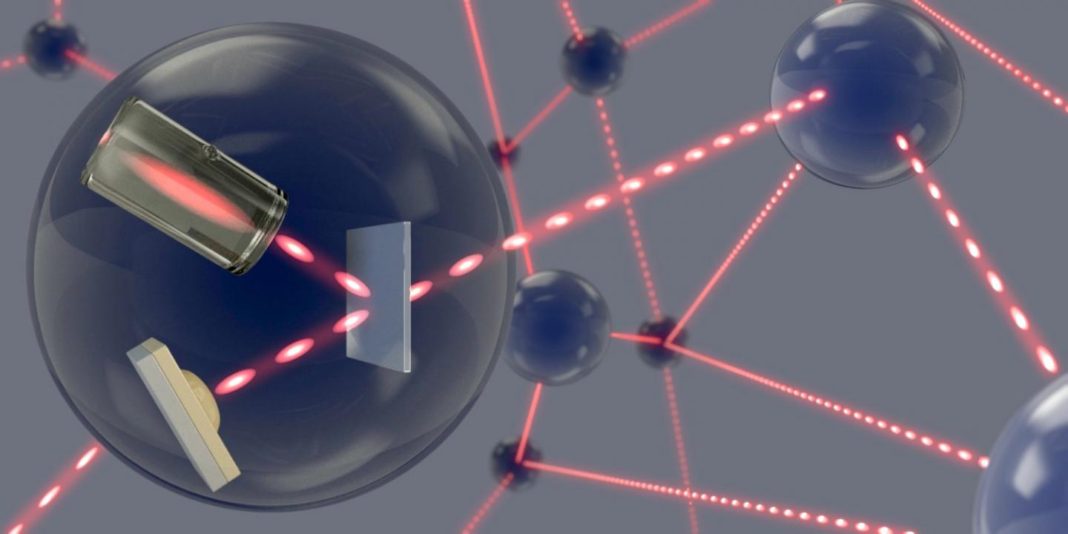A breakthrough in quantum technology has been made this month thanks to physicists from the University of Basel as they develop a memory capable of storing photons. Using atomic vapor, the researchers were able to store quantum particles and recover and read them later without changing their quantum properties too much. This type of technology could prove to be very useful for future applications in the quantum world.
Short light pulses are used today to enable fast data transfer in telecommunication networks. Fiber optic broadband works by transferring information at the speed of light. Those on the receiving end need to be able to quickly store the transmitted information without error so that it can be sent on further electronically to other computers. Every bit of information that goes through transmission is encoded to avoid any errors. The way it’s encoded is through strong light pulses containing hundreds of photons.
For a long time, researchers have been trying to operate these networks using just a single photon. This is because encoding one bit per photon is extremely efficient and it allows a for the new form of data transfer using quantum physics to be introduced. It’s a key element of quantum memory and one that’s vigorously investigated by physicists worldwide.
However, a new simple and fast quantum memory have been developed by a team of physicists led by professors Phillip Treutlein and Richard Warburton from the University of Basel that stores photons in a gas of rubidium atoms. There are no cooling devices or vacuum equipment needed, and a simple laser controls the storage and retrieval of the memory. The researchers also verified that the memory is suitable for single photons and has a very low noise level.
“The combination of a simple setup, high bandwidth, and low noise level is very promising for future application in quantum networks,” says the first author of the study, Janik Wolters. It’s also one of the goals of the National Center of Competence in Quantum Science and Technology (NCCR QSIT). Moving forward quantum networks could soon become the forefront technology for enabling secure communications.
More News to Read
- Meet the Engineer Who 3D Prints Revolutionary Human-Robotic Arms
- Meteor Shower From Dead Comet Sighted Again
- Will Tesla 3 Pre-orders See the Light of Day and Will This Car Create…
- Future NASA Study Will Focus on the Ocean Worlds of the Milky Way
- Quantum Computer Programming: What You Need to Learn to Get Started?











